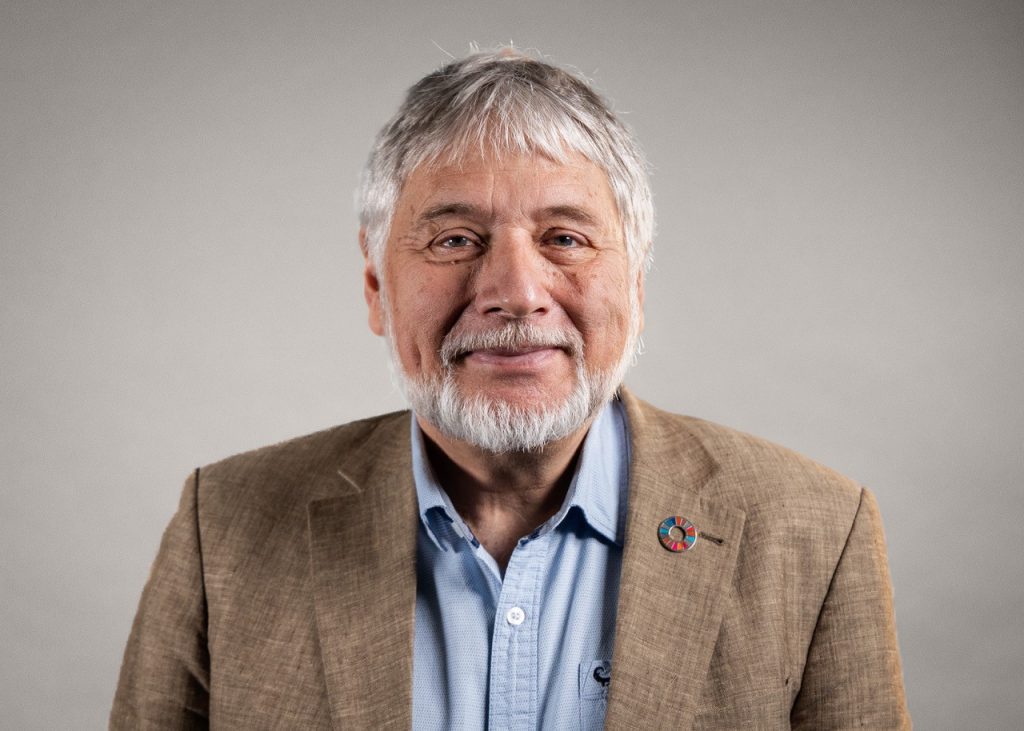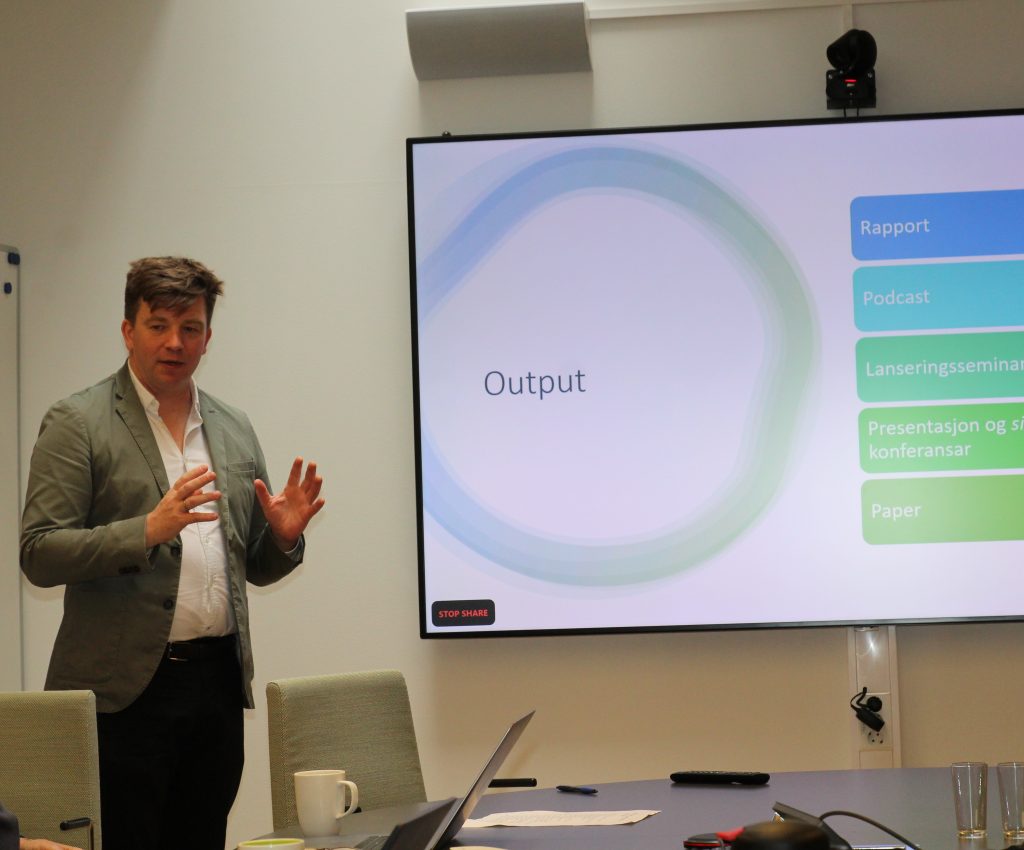Summer has reached Europe. While some parts experience heat waves, it has been cool and wet so far here in Bergen, but now finally the Nordic summer is emerging. We can look back at a semester where the grip of the pandemic has faded.

Eystein Jansen Academic Director is the Academic Director of the AE-Bergen Knowledge Hub. Photo: ERC.
However, new variants of the virus put people to bed, but this time mostly with milder symptoms and new lockdowns in Europe seem unlikely. This encourages our Hub to plan for more physical activities ahead, although the pandemic has taught us that we can get much done and reach further out by also utilizing online meeting and webinars.
Instead of the expected normalization we now have a devastating ongoing crisis in Europe with global effects, due to Russia´s unprovoked brutal invasion of Ukraine. In addition to the direct suffering and senseless destruction, the conflict influences many aspects of academic life. Most severely for Ukrainian academics who have had their lives turned upside down, whose workplaces are destructed or inaccessible, who have had to flee or to take part in the armed or civilian resistance. They all have my deepest thoughts and concerns!
But the effects go way beyond the direct impact for Ukrainian (and Russian) academics. Research is international by nature, and the changing geopolitical and economic landscape will influence us all in many ways. We can already see that the war and the sanctions have created severe obstacles for cooperation in the Arctic, – a region of high priority for our Hub. In May we organised a successful side-event on the status, opportunities, and environmental impacts of potential deep-sea mineral mining at the Arctic Frontiers Conference in Tromsø. Throughout the conference however, both in sessions and off sessions, the effects of the ongoing war on Arctic research were a theme of deep concern.

Ole Øvretveit will work on a report on the effects of the Ukraine War on science diplomacy and scientific cooperation in the Arctic for the AE-Bergen Knowledge Hub. Photo: Nils Olav Sæverås
Research has for many years been an avenue for science diplomacy and collaboration in the Arctic and has helped lower geopolitical tensions in the region. The current shut-down in western-Russo relations is effective in the Arctic. A potent example of this is the pausing of all Arctic Council activities. The academic community risks losing networks, collaborations, and key environmental data. For this reason, our Hub has initiated a project to investigate the effects of the war on Arctic research and science diplomacy on the short and longer term. We aim to provide a report by the end of this year.
Through November 2021-March 2022 the Hub helped organise the work of an AE Task Force set up by the Board to explore a stronger AE presence in the area of climate, environment and sustainability. A membership poll showed wide interest in contributing, and we envisage new initiatives to emerge after the summer break.
We can welcome close to 50 new AE members from the Nordic and Baltic regions in this year´s nomination round, and hope all will become active members. In Norway we have strengthened our ties to the national academies and hope to be able to do so across the Nordic/Baltic region as well. Any help with establishing meeting places or joint activities in the rest of the region will be heartly welcomed.
With the demise of the pandemic, we plan to launch new initiatives and opportunities for our members the coming semesters, some in collaboration with other AE Hubs and some related to the Science Advice for Policy activities of AE in the second phase of the SAPEA project, now funded as SAPEA+ under the Horizon Europe Programme. We look forward to receiving suggestions and ideas that our members may have on events and themes that our Hub should engage in.
With best wishes for a nice summer!
Eystein Jansen
Academic Director
